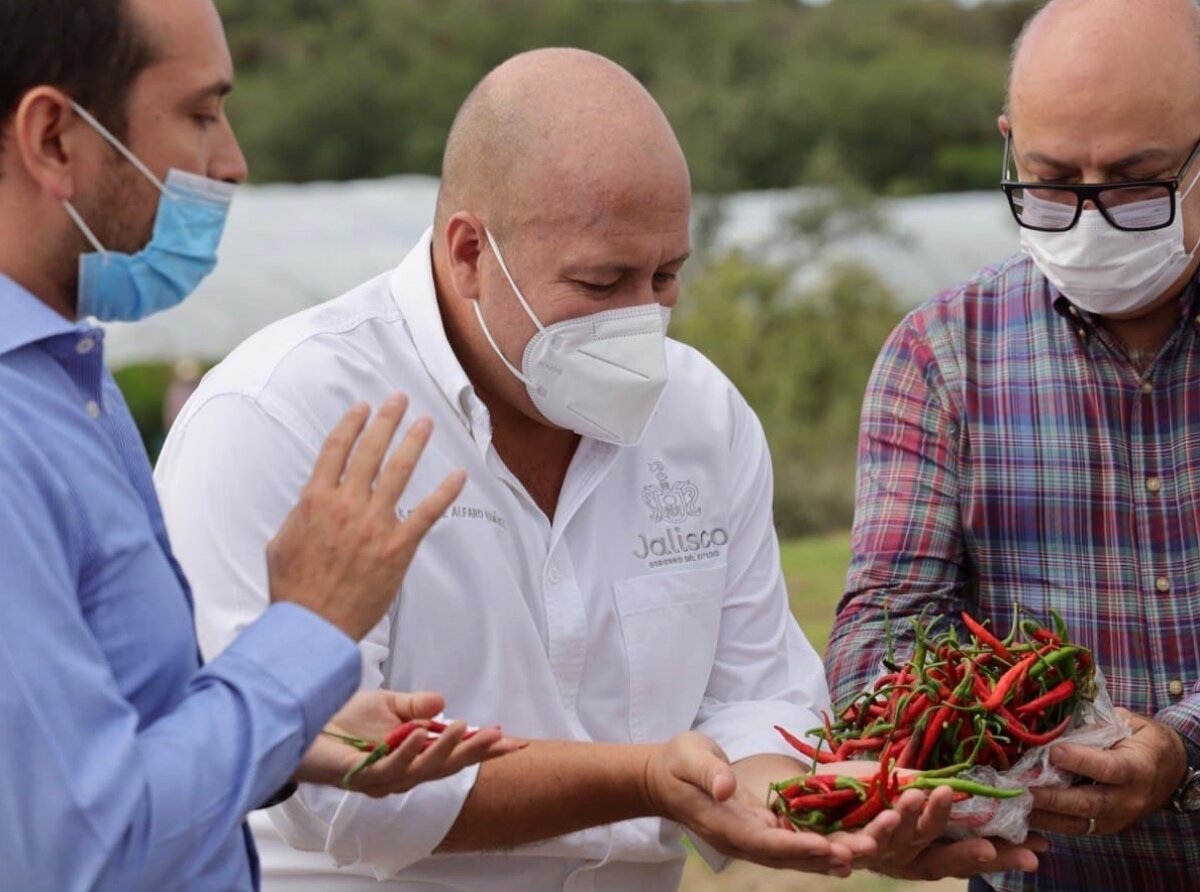The harvest of chile de arbol in this spring-summer cycle and the interest shown by entrepreneurs and farmers confirm that the bases for production have been established in the North Region.
The head of the office of the Jalisco Ministry of Agriculture and Rural Development (SADER,) Salvador Álvarez García, expressed the above on a working tour of the aforementioned demarcation, where the initial chili harvests of varieties demanded in the business plan already exist. With the assistance of SADER, the Tajín Corporation has assumed the commitment to be the driving force behind the introduction of Solanaceae to the aforementioned Jalisco demarcation in protected agriculture schemes.
The state official noted that the promotion of new agricultural products in the Northern Region has been a commitment of the government of Enrique Alfaro to generate economic alternatives and sources of employment, and they already register initial results with the Solanaceae crops in Colotlán and Totatiche, as well as the blueberry agropark in Totatiche.
As reported, this summer season there are already two harvest periods for chili de arbol, as a result of a concerted action between the private sector and SADER Jalisco.
This project for the induction of chili peppers combines factors of protected agriculture with the use of rainwater, in addition to reducing the use of pesticides with the use of so-called trap crops that are planted on the edges of the fields, so that the impact of pests is mitigated.
This scheme has in its favor the fact that since it is a region where there is no history of large-scale cultivation of chili, a low incidence of pests that exist in other regions is predicted.
The project during 2020 involved the construction of macro tunnels, in addition to the installation of the fertigation system with pumping equipment and the use of reservoirs to manage the plants.
Mexico as a country has a deficit in the production of dried chili peppers, so Grupo Tajín's investments in the Northern Region are aimed at reducing imports of this product, both from Asia and South America.

